March 7, 2016
Well, this is it.
We have finally reached part three of this special series of articles in which I give you an insider, sneak peak of every single nitty-gritty component of my daily routine…
…in Part 1, you got my exact morning routine unveiled step-by-step…
…in Part 2, I delved into my afternoon, workout and workday habits…
And now in Part 3, I'm going to share with you everything I do at night to relax, enhance fat burning, enter deep sleep and biohack every PM hour of my life.
The evening routine you're about to discover is something evolved from years of studying, self-experimentation and self-quantification, and interviewing experts like Nick Littlehale for advanced sleep hacking tactics, Dr. Joseph Zelk for sleep tracking and deep sleep enhancement, John Kiefer for evening carbohydrate, fat and protein ratios, and many others you can discover in the sleep category of BenGreenfieldFitness.com.
As I mentioned in the previous two parts of this article series, I don’t know any successful people who do not have some kind of a relatively structured and occasionally elaborate daily routine. So without further ado, for your entertainment and education, here is my current evening routine in extreme detail.
—————————–
Ben Greenfield's Evening Routine 7:00 pm…
As you learned in Part 2 of this series, because body temperature, reaction time and post workout protein synthesis (your anabolic response to a workout) peak sometime between about 4 PM and 6 PM in the day, I finish up my afternoon with a difficult workout that challenges my sympathetic nervous system.
After a quick cold shower (click here to watch a video), I then wrap a big red bow around my afternoon or early evening workout with a latte-frothed glass of organic, low-sugar, high-antioxidant red wine. As I mentioned in Part 2, this is because in a post-workout situation, the fructose sugars in the wine simply help to replenish liver glycogen stores (muscles do not contain the enzyme to store fructose as glycogen, but the liver does), and the glucose and sucrose sugars in wine are far less likely to spend significant amounts of time in the bloodstream.
Glass of wine complete, it will now be around one to two hours before I'll have dinner. As I discuss in this podcast episode with Mark Sisson, this is because avoiding a big meal in the immediate post workout window can actually help to enhance both growth hormone and testosterone. If it's been a very difficult, muscle damaging workout such as a hard run, sparring, kickboxing or a weight training routine, I will often include 10g of essential amino acids along with the wine, so that I can give my muscles some amount of repair capability without actually spiking my insulin levels.
During these hours before dinner, I will, depending on the day:
-Write for 15-30 minutes in my book of fiction “The Forest”, typically using the dictation methods I discuss in my podcast interview with author Joanna Penn and also sitting in my special, space-agey recovery boots…
-Play the ukelele or guitar, typically alternating between formal learning videos on YouTube or from books, or playing actual songs via the Ultimate Guitar app, which I've downloaded to both my phone and Kindle…
-Wrestle, play board games, walk in the forest or read to my twin boys…
-Play an easy game of doubles tennis in men's league at my local tennis club…
-Catch up on any last remaining e-mails, phone calls or work activities…
As I discuss in my article on getting more done at your peak time of day, there are certain times of day during which you are most creative and certain times of day during which you are most productive. I am absolutely, beyond a doubt, relatively useless in terms of productivity after about 7 PM, and so I save most of my creative work for that time of day (which fortunately happens to be my peak creativity time) and ensure that by that time in the day I have already produced any articles, podcasts, consults, training plans, meal plans, etc. that I need to take care of.
Sometime between 8:00 pm and 9:00 pm…
Yes, we are absolutely a late dinner family. While we do indeed eat together as a family most nights of the week, we've simply found that in our household, it works best to save dinner for later in the day, after nearly everything else is complete. Since my entire family is on board with the concept that snacking and grazing is overrated and that three square meals a day is about the most that you need to keep your metabolism elevated, nobody in the family really creates any grief over waiting a long time for dinner.
As a rule, dinner is nearly always the most carbohydrate-rich meal of the day, and I personally, depending on the day's level of physical activity, will typically eat 100-150g (400-600 calories) of carbohydrates with dinner. The concept here is that while carbohydrates will indeed spike insulin, as long as your muscle glycogen stores are not full (as will be the case at the end of an active day, and especially at the end of the day that includes a hard workout in the afternoon or early evening) the insulin will drive carbohydrates into muscle tissue, not into fat tissue. John Kiefer explains this concept quite thoroughly in his “Carb Backloading” book.
Nonetheless, I still, for both longevity and blood glucose control, will often use bitter melon extract capsules (which act very similarly to the diabetic drug Metformin) prior to dinner if the dinner is very large in carbohydrate content (e.g. 100g+) or if I'm going to a restaurant or a party where I do not know exactly what I'm going to be eating or anticipate high carbohydrate intake.
Another supplement that I will use 20-30 minutes prior to a large meal is digestive enzymes. This is because gut testing that I have done on myself has revealed that I have low levels of enzyme production, most likely due to my extremely high level of physical activity, and the fact that to support that high level of physical activity, I'm often eating in excess of 3500 calories per day.
So what exactly do we eat for dinner here in the Greenfield house?
While I eat nearly the same thing every day for breakfast (a green smoothie) and lunch (a salad), dinner tends to be our most varied meal of the day. Some of our go-to staples include homemade pad thai with nori wraps, quinoa salad with nuts and cheese, fish with roasted vegetables, steak with sweet potato fries, falafel or lentils with yogurt, and many of the meals I outline in my “40 Meals For Busy Athletes” article.
Contrary to what many folks seem to assume (since I'm a hunter and often hang out with the Paleo crowd), we actually don't eat meat every night, and I personally only have a small portion of meat once every 1-2 days.
Why the meat moderation?
Three reasons, really:
#1: Meat has been shown to cause what is known as “Neu5Gc-mediated autoimmunity”, which can cause everything from skin issues to hypothyroidism to increased cancer risk. You can read about this in Part 1 and Part 2 of author Paul Jaminet's recent treatise on the topic of red meat and Neu5Gc.
#2: Excessive meat and protein intake is very anabolic, can cause uncontrolled division of a population of rogue cells in the body, and can increase cancer risk, especially if that meat is cooked or processed. Stephen Guyenet has written an excellent research-based article series on this topic.
#3: Due to meat and high protein intake's activation of a protein called mTor and an increase in the rate at which telomeres shorten, there is a definite tradeoff between meat intake, protein, growth and longevity. Ray Cronise details this in his Metabolic Winter Hypothesis by Ray Cronise.
For these reasons, my diet is primarily comprised of a copious amount of vegetables and plant matter dressed up in plenty of healthy fats and oils, and moderated amounts of meat and protein intake.
If we're not eating dinner at home, we will typically wind up at a sushi, Korean, Japanese, or local “farm-to-table” restaurant, at which we implement the following best practices:
-Always substitute roasted vegetables for any bread or mashed potatoes, and turn down or avoid bread or chips if brought to the table, unless they are something like slow-fermented sourdough bread or non-GMO corn chips in moderation.
-Acceptable starches: rice, quinoa, amaranth, millet, sweet potato, yam, squash, carrot, beet or other non-gluten, non-GMO sources.
-Acceptable proteins: nuts, seeds, grains and any non-fried meat that is cooked in preferably low temperatures with healthy oils and is organic, local, wild or grass-fed.
-Acceptable fats: coconut oil, grass-fed butter, olive oil, flax seed oil, avocado oil, macadamia nut oil, and any fat that is 100% natural, that is not a vegetable oil, that is not batter-fried, and that is not an oil with a low smoke point (e.g. canola oil, sunflower oil or safflower oil) that has been heated. When in doubt, we ask for creams, dressings and sauces “on the side”.
I'm often asked about post-dinner snacks and desserts. If I've had a very active day, have a very big workout planned for the next morning (e.g. a day hike with a heavy pack), or if I'm simply still hungry after dinner, I will often include some kind of snack or dessert, including:
-A handful of chlorella or spirulina tablets mixed with 90%+ dark chocolate…
-Dark chocolate stevia blended with full fat, BPA-free coconut milk in an immersion blender…
-Organic chia seeds soaked in water with Aztec sea salt and frozen blueberries…
-Half an avocado blended with dark chocolate powder, Ceylon cinnamon, vanilla, coconut milk and almond butter…
-A spoonful of coconut oil with some kind of raw nut butter on a chunk of dark chocolate…
-When I'm really in biohacking mode, some form of exogenous ketones to shove my body into ketosis for the evening (they actually taste pretty good blended with water and ice)…
-This homemade high-fat, low-carb ice cream…
Once I've finished eating, I glance at my watch. While I don't get too obsessed over quantification, I do indeed perform a quick mental calculation and wait at least 12 hours before eating again. This means that if I'm finished with dinner and snacking at 9pm, I won't eat again until 9am. If 10pm, then I will put off breakfast until 10am. If I eat a midnight snack, I won't eat again until noon. Due to the extensive research on the link between intermittent fasting and longevity, cellular repair and gut health, on nearly every day of the year, I incorporate this 12 to 16 hour fasted window. During this time, the only items I consume are supplements, water or caffeinated beverages such as coffee or green tea.
9:00pm…
With dinner over, it's now time to begin winding down for the night.
It all begins with helping my seven year old twin boys, River and Terran. They personally take very, very good care of their teeth and bodies prior to bed, and I don't need to help them too much. We raised them on Kid's Calm Liquid Multivitamin, but now that they have teeth, they each use the no-sugar version of the Smarty Pants Kid's Multivitamins, then brush their teeth with a special tooth powder that Jessa makes (thanks to my friend The Wellness Mama for this tooth remineralizing recipe).
While the kids are taking their multivitamin, brushing their teeth and getting into their pajamas, I take care of my own body, using their same tooth powder and also taking my nightly sleep remedy: 4 capsules of NatureCBD, 1 packet of Sleep Remedy, and if I've been traveling (traveling tends to get me constipated), a cup of Natural Calm magnesium powder or Smooth Move chamomile tea.
We then head up to the kid's bedroom, where I play them a bedtime song on the guitar or the ukelele, and then we gather around to give thanks to God for one little thing we're grateful for that day and also pray for one way that we can help make someone's life better the next day. I say General Douglas McArthur's prayer over them, the same prayer I highlight in “Five Quotes I Live By, Three Keys To Happiness, Two Questions To Ask Yourself & One Must-Do Thought Experiment.“, and then tuck them away.
10:00pm…
Yes, yes, yes, I realize I'm well known, and occasionally ridiculed, for dialing in every tiny detail to get myself into deep sleep as fast as possible, to optimize every second of sleep that I get, and to get through four to five full 90 minute sleep cycles each night. I'm constantly researching and testing what truly works to enhance my morning heart rate variability, a key sign of a well-rested body, brain and nervous system.
Jessa and I generally don't waste too much time staying up after putting the kids to bed, and rarely watch TV or spend time on a computer, Kindle or phone at this point in the evening (should I use a screen after 7pm, I do use my custom blue light blocking glasses or my Swannies). If we do get it on, we do it in the evening, and it's generally around this time after the kids are down for bed. I really don't feel I need to get into too much detail as I don't use too many “sex hacks” or crazy sex toys, but here are a few quick tips:
-We use natural lambskin condoms for the ultimate sensory experience…
-If it's legal in your state, a THC balm can also make things a bit more exciting, and we use one called “Bond”…
-We use a special kind of bulb in our room made by Lighting Science. It is a biological LED bulb engineered to remove blue light, but the nice thing is that it also gives off a bit of a red glow that seems to be perfect for sex…
–Big stand-up mirrors in the bedroom – can't recommend them highly enough…
In my recent presentation at the Men's Sexual Satisfaction Summit, I get into plenty more details about sexual habits, sexual practices, and sexual health, so go listen to that, and if you want to enhance sexual fitness, I'd also recommend you check out my article on “The Private Gym” (warning: it's explicit).
After sex, it's time for sleep.
In concise format, here's my entire pre-sleep routine:
-Attach the SR1 PEMF device to my collarbone and turn it on…
-If I've been traveling or I'm jetlagged, turn on the Earthpulse and lay on the Biomat…
-Put the room temp at 66-67 degrees…
-Close the blackout curtains…
-Rub down any sore muscles or tight spots with magnesium lotion…
-Flip the kill switches I've installed in the bedroom (detailed in my “Biohack Your Home” book)…
-Sprinkle a few drops of essential lavender oil on the pillow…
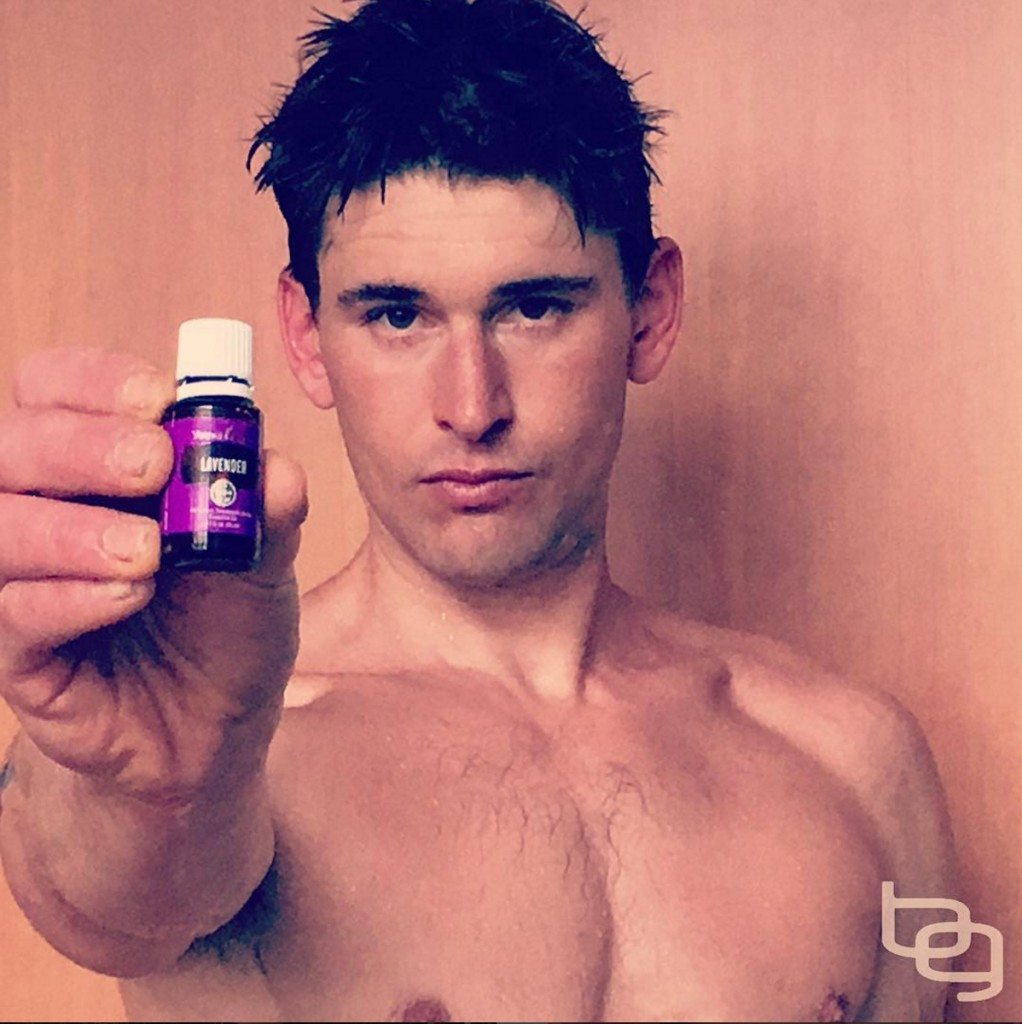
-Put on my wraparound Sleepmaster sleep mask…
-Put on my Sleepstream app and play it in “Deep Sleep” mode through my SleepPhones…
-And…that's it.
I realize this seems like a lot of “stuff”, but now that it's a nightly habit, I fly through this entire routine in about 2 minutes, and makes a night-and-day difference (pun intended) in sleep quality and quantity.
I'm often asked if I track sleep. I rarely do. Sometimes if I use a brand new sleep-hacking device or nutrient, I'll break out my “Beddit“, but even that is rare, and I don't currently do much sleep tracking as I want to refrain from using any Bluetooth devices or high EMF-emitting devices while I sleep. But when the Oura ring is released, I'll begin using it to track sleep cycles, since any transmitting mode can indeed be turned off with that particular device, and it's been shown to be over 80% as accurate as professional sleep tracking equipment.
———————
Summary
So that's it.
What do you think?
Do you have questions?
Your own evening habit tips to add?
I'd love to hear your thoughts below.
In the meantime, if you dig this kind of “inside-the-life-of-Ben” stuff, you may (you creepy stalker, you) enjoy the first article in this series “My Exact Morning Routine Unveiled Step-By-Step“, the second article in this series “My Exact Daily Routine Unveiled Step-By-Step” and you may also like “A Day In The Life Of Get-Fit Guy“.
Another place where you can find the routines of some interesting folks much more famous than me is the excellent book “Daily Rituals: How Artists Work“.
And remember that I post many of my personal workouts and detailed photos of my meals inside the BenGreenfieldFitness Inner Circle.
Finally, very soon, I'll be doing a “Day In The Life” story on my Snapchat…
Of course, if you have proposed modifications to my evening routine, you want to describe your own evening routine, or you have questions, thoughts or aggressively good-humored ridicule, then feel free to use the comments section below!



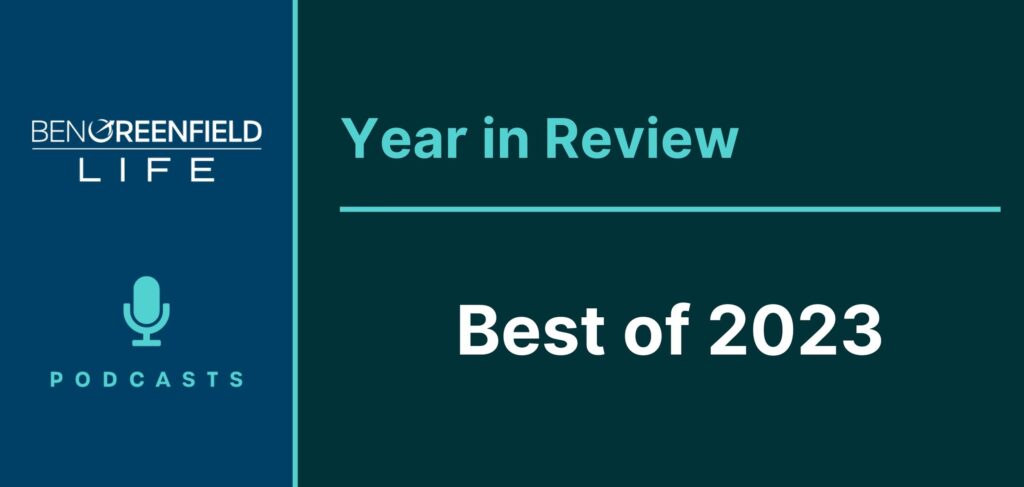
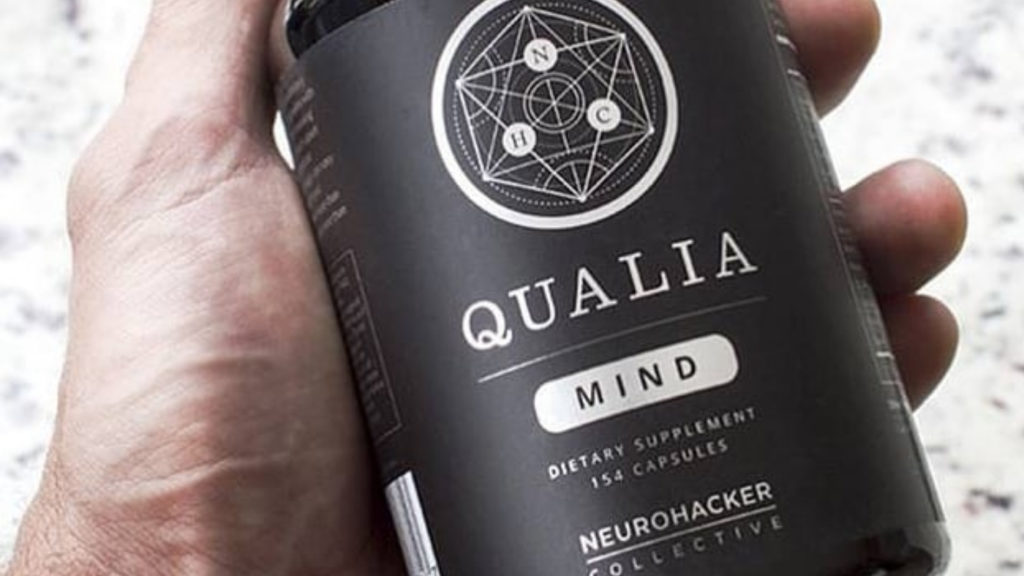
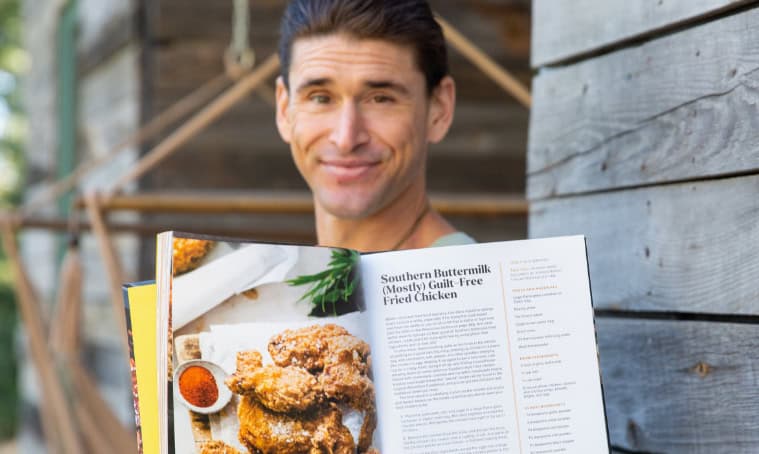

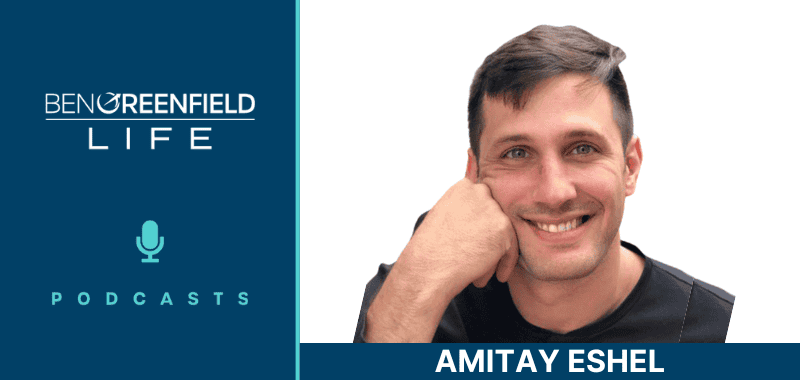



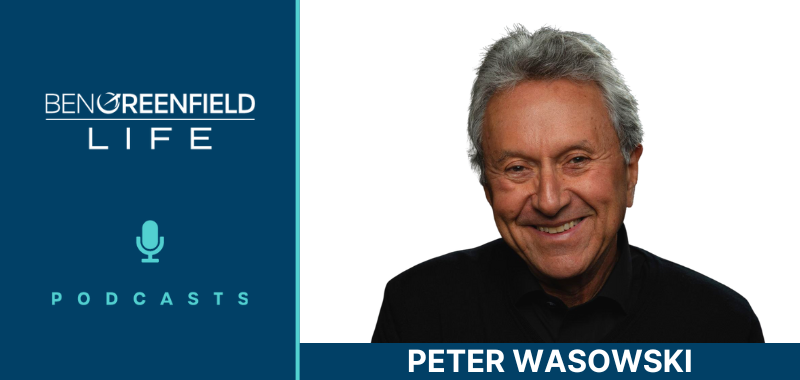


Hi Ben,
Thanks for sharing your entire daily routine.
Can I ask how much does it cost to keep supplied with all the plants and supplements you eat? I’m wondering if I can replicate your diet and supplement intake on a budget?
Thanks,
Calum
I've never sat down to calculate it, it would also probably vary month to month. I never advocate for someone "replicating" mine or anyone else's diet/supplement regimen. Identify your goals, nutritional gaps in your diet, and create a diet and supplement plan tailored to your unique needs. I can help with this via one on one coaching if you'd like. https://bengreenfieldfitness.com/coaching Otherwise, do a search on my site for any areas you're having trouble with.
Hi Ben,
In the morning routine you suggested 3 capsules of the Thorne multivitamin which has AM & PM. Do you not take the 3 pills at night (pm)
Are you considering your dinner carbs as 100-150g net carbs from good starches, or just carbs in general?
Net carbs.
On your most recent JRE podcast I think you mentioned a particular supplement that you drink at night that helps keep you regular in the morning but I can’t remember what it was or find the exact part in the pod, do you remember what it was? Thanks.
Triphala. https://lostempireherbs.com/?utm_source=affiliate…
Hi Ben, heard your recent episode on JRE pod. Love your content. I’ve heard a respected scientist (Valter Longo or Satchin Panda) suggest that any non water intake would interrupt an intermittent fast. I’m certain you’ve addressed this in the past. If you could link to a pod or article, i’d Appreciate it. Thanks for sharing all you do!
I go over it briefly here: https://bengreenfieldfitness.com/transcripts/epis…
How do you use the chill pad without electricity? You indicate you use a kill switch. I’m also confused about EMFs and your use of WiFi tracking devices. Can you please clarify?
Thank you.
Ben, curious about your dinners. You said most nights you do not eat meat. Can you give examples of one of your non-meat meals, please? In the article you linked above ( “40 Meals For Busy Athletes”) all of the dinner options contained meat except for the scrambled eggs. Do you substitute beans for meat for your protein portion? Thanks.
Typically something like this: Falafel Burgers
3/4 cup dried Chickpeas soaked properly.
2 Tbl. lemon Juice
1 Tbl. olive oil
1 Small onion finely chopped
1 tsp. sea salt
2 cloves Garlic
2 tsp. ground Coriander
2 tsp. ground Cumin
1/2 tsp. pepper
1 tsp.baking soda
1/4 chili powder
1/4 cup finely chopped parsley
On the stove boil Chickpeas till soft. With a potato masher mash the chickpeas until almost a paste. You still want it a little chunky but resembling more of a paste. This boiling process takes about a hour.
When chickpeas are ready, in a skillet heat olive oil, or for a more stable oil, coconut or macadamia oil, and saute onion, salt, coriander, cumin and garlic until tender. Set aside.
Combine Chickpeas, Onion mixture, baking soda, chili powder, and parsley.
On an oiled baking sheet create little patties about the size of small hamburgers. Bake the patties at 350 for about 30 min.
Tzatziki sauce for wraps
1 cup non fat plain yogurt (if lactose intolerant, could Half a red onion chopped fine
Half a cucumber seeded and chopped finely
Juice of one lemon
Combine all ingredients.
We use homemaade sourdough or gluten free bread for wraps
Does the wine your drink contain sulfites? Does it really matter? Thanks.
We covered that here: https://bengreenfieldfitness.com/fitvine
What kind of diet you advice if you train most of time 4 times per week weight training and 1-2 cross fit workout. Still high fat, low carb diet?
What is your opinion on fats and carbs in same meal? You eat 100-150g carbs in one single meal?
I honestly tend to customize diets based on specific training protocols. Most of the time it is a plant rich, high-fat, low-carb diet, but the amount of fat, protein and carbohydrate highly varies based off an individual's size and training methods. I'd be happy to help you via a personal one-on-one consult. Just go to https://bengreenfieldfitness.com/coaching. and then choose a 20 or 60 minute consult, whichever you'd prefer. I can schedule ASAP after you get that.
Can you use the Biomat and the Earthpulse simultaneously?
You absolutely can – yes!
I loved all three pieces of this series! 1 because you talk about so many different things, I wondered how you incorporated them. I.e at one point you mentioned loving hot yoga every morning, but then you talked about Cool Fat Burner and doing ice dips in the morning. So it’s interesting to see how you rotate through it all!
I’m truly intrigued most right now by the PEMF. I love not only the sleep, but potential restorative effects for any injury.
Oh which would lead to one question! Do you still use the Earth Pulse under your bed along with the Delta sleeper?
Yes, but only if jet lagged or in a highly inflamed scenario such as after a big race.
What about berberine instead of bitter melon extract?
Berberine is able to reduce glucose production in the liver. Human and animal research demonstrates that 1500mg of berberine, taken in three doses of 500mg each, is equally effective as taking 1500mg of metformin or 4mg glibenclamide, two pharmaceuticals for treating type II diabetes. Due to AMPK inhibition, berberine is normoglycemic (reduces blood sugar only if elevated). However, the reduction in blood sugar from berberine may make other hypoglyemics more likely to cause reduced blood sugar. High doses of berberine taken acutely, due to their poor intestinal uptake rate, may cause cramping and diarrhea; for this reason, berberine should be taken in multiple doses throughout the day…
Thank you for explaining this I have been searching your articles and transcripts about this.
Hey Ben, great read- just a question on your post workout from this aritcle… you’ve said to avoid antioxidants near a workout. How close before and after? Does Red Wine or a scoop of greens fall into that category that may blunt the effect of a workout?
Also is a cold shower or soak after a good endurance workout blunt the process by getting rid of the inflammation?
Generally, the research that shows that antioxidants may blunt the response to exercise involves high-dose antioxidants combined with exercise that isn't very stressful. Red wines or SuperGreens doesn't really fall into that category. Technically the research on cold shows that it may slightly blunt the fitness building effects of a workout, but even that research is done with very cold water soaks, and not a quick cold shower.
Have you ever tried r-lipoic acid to moderate glucose spikes? Of course, it is an insulin mimic (works via GLUT4) so it has a different mode of action from something like bitter gourd.
I have used alpha-lipoic acid, but not for this specific purpose. Good tip.
Consider going to McArthur’s Memorial in VA if you have never been. It’s quite moving and beautiful.